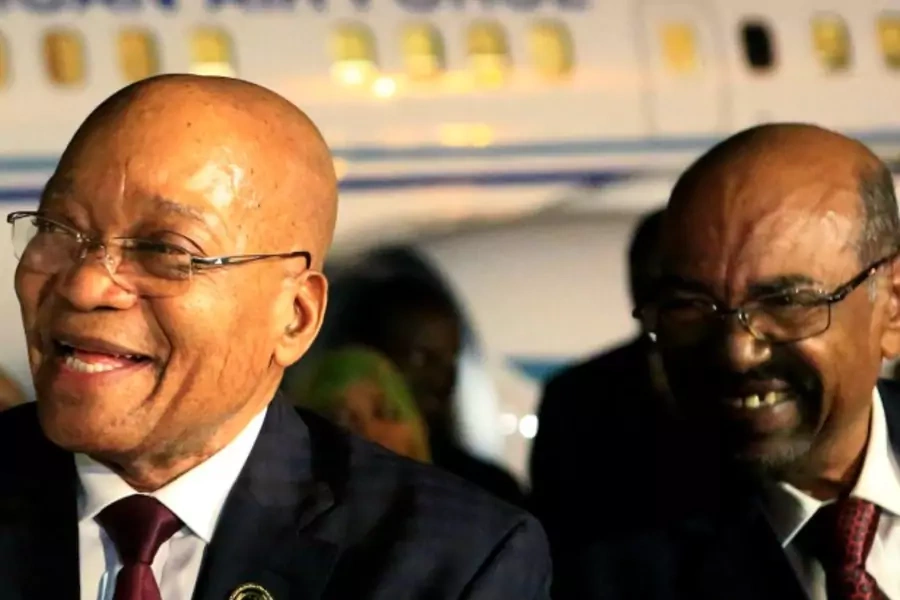For this outsider, the parliamentary and judicial response to the Zuma administration’s failure to detain Sudanese President Omar al-Bashir and turn him over to the International Criminal Court (ICC) provides a window in to the state of South African democracy. To me, it is clear that the Zuma government broke both South African and international law by not only failing to hold al-Bashir, though specifically ordered to do so by the South African judiciary, but also facilitated his clandestine departure. South African law is relevant because the South African government at the time incorporated the ICC treaty into its own legal system.
Neither the judiciary nor the parliament is taking the Zuma administration’s violation of the law quietly. The Pretoria high Court has “invited” the National Director of Public Prosecutions to look into how South Africa violated a court order to hold al-Bashir. Judge President Dunstan Mlambo said, “A democratic state based on the rule of law cannot exist or function if the government ignores its constitutional obligations.” The parliamentary debate was raucous. The official opposition, the Democratic Alliance (DA), stated that the Zuma government was in contempt of both the South African court and the ICC. A DA parliamentarian, Steven Mokgalapa said, “The African National Congress (ANC) government, led by Zuma has committed a crime of assisting a wanted man to run from the law.” Congress of the People (COP) leader Mousiuoa Lekota is quoted by the media as saying, “You lied to us. You said you will uphold the constitution, uphold the law and be an example. You have misled the people of our country and now we are ashamed before the nations of the world.” (“Terror” Lekota – his nickname comes from soccer – is a Robben Island veteran and was once an ANC stalwart; a former Minister of Defense, he broke with the ANC when it removed Thabo Mbeki from the party leadership.)
More on:
The ANC defense boils down to the propositions that heads of state are immune from the ICC. (The Rome Statute specifically says that heads of state are subject to ICC jurisdiction.) Further, that al-Bashir was attending an Africa Union summit, rather than making an official visit to South Africa.
However, some ANC leaders are roundly attacking the ICC and calling for South Africa to withdraw. In what is likely to be a swipe at the United States, ANC Secretary General Gwede Mantashe said on local radio that the ICC “is a tool in the hands of the powerful to destroy the weak and it is a court that is focusing on Africa, Eastern Europe, and the Middle East.” He said South Africa should consider leaving the ICC: “If I was in government, I would give notice, get out of that, it was not what was envisioned.” Justice and Constitutional Development Deputy Minister John Jeffrey is quoted as saying that the ICC “has diverted from its mandate and allowed itself to be influenced by powerful non-member states. We signed up for a court that was going to hold human beings accountable for their war crimes – regardless of where they were from. We perceive it as tending to act as a proxy instrument for those states who see no need to subject themselves to its discipline, to persecute African leaders, and effect regime change on the continent.”
The al-Bashir episode provides a muddled picture of South African democracy. The government appears to have acted illegally. The judiciary and the legislature have reacted vociferously. But, nobody seems to expect that anything will happen.
More on:
 Online Store
Online Store
